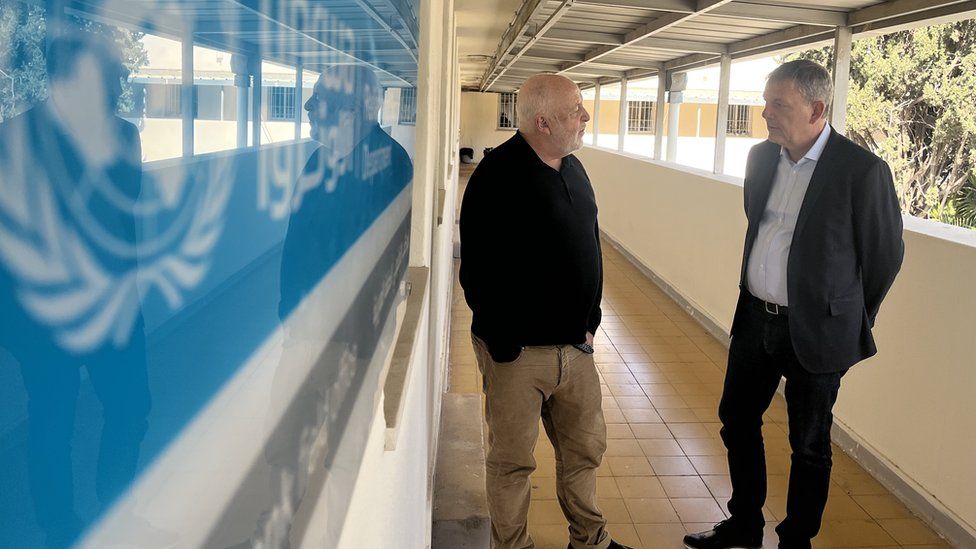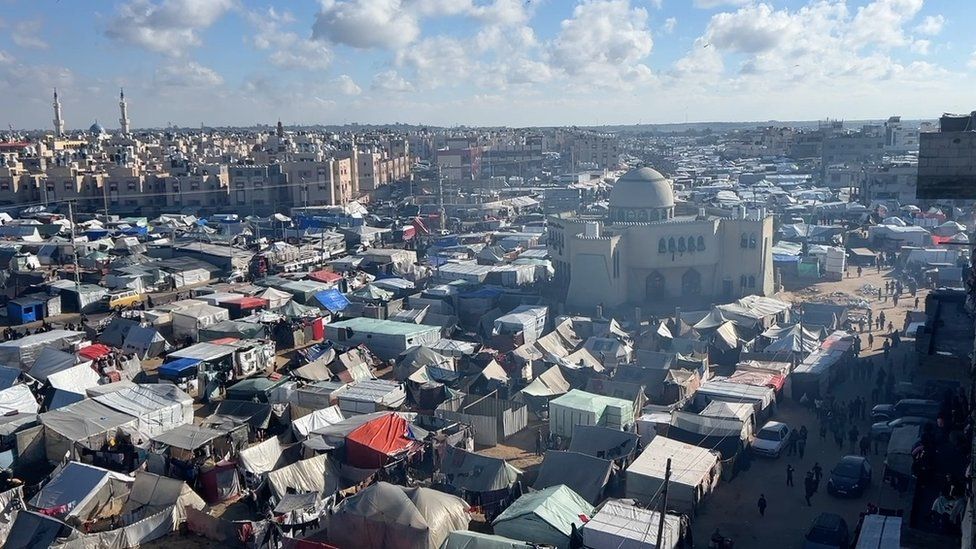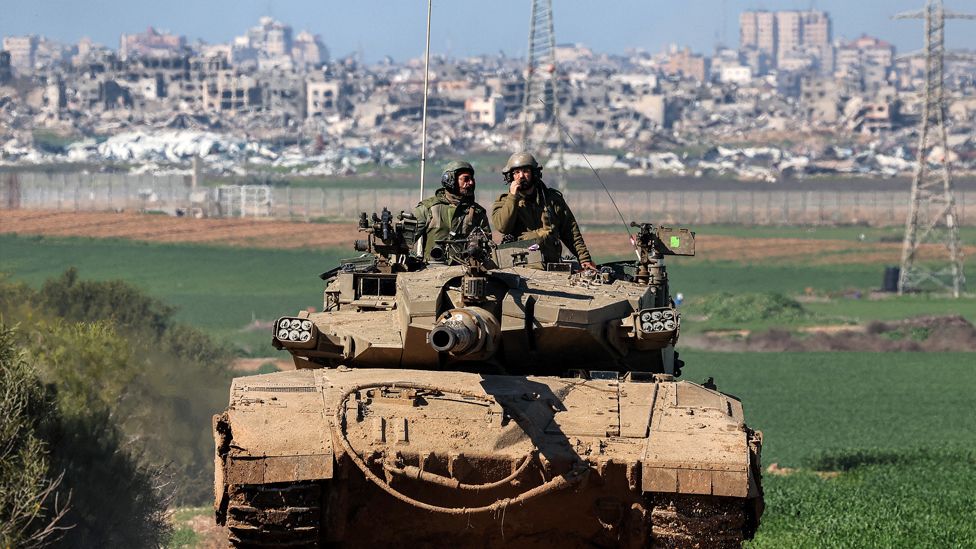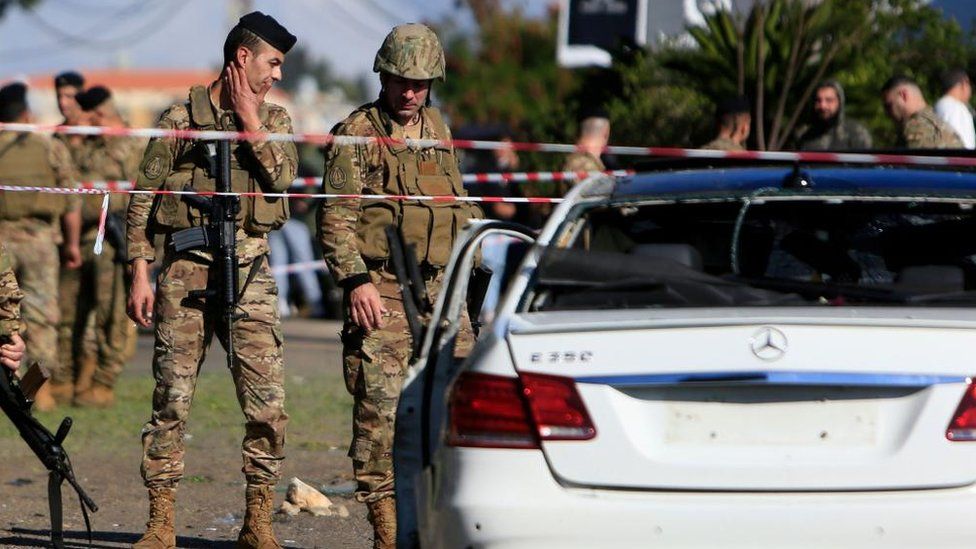Israel-Gaza war: Death, Israel’s search for “total victory”
BBC carries an extensive article about Israel’s search for total victory, Caliber.Az reprints the article.
I'd rather be writing this story in the Gaza Strip, not Jerusalem. After many years of covering wars, since El Salvador in 1989, I'm convinced that nothing beats first-hand reporting.
Unfortunately, in this terrible war, international journalists can't do that. Israel and Egypt, the two countries that control Gaza's borders, do not want us in there, reporting freely. Israel allows some closely supervised visits with its army. I have been on only one, back in November.
Since we cannot get in, we rely on Palestinian journalists who can't get out. I have huge admiration for their courage and dedication to truthful reporting.
Fortunately, in the modern world it is impossible to seal a war off. That is because ordinary people can film with a phone - and with a few clicks, post their pictures online. We can talk to them too, if communications haven't been cut. Israel and Hamas upload their own videos. Everything must be verified and checked, especially now that artificial intelligence is much easier to use.
With all those constraints in mind, this is how the war looks on a February day from Jerusalem.
The humanitarian crisis
Just after Hamas attacked Israel on October 7, Yoav Gallant, Israel's defence minister, announced: "We are putting a complete siege on Gaza… No electricity, no food, no water, no gas - it's all closed."
"We are fighting human animals," he added, "and we are acting accordingly."
Under pressure from US President Joe Biden, Israel now allows limited supplies of food, water and medicine into Gaza. But it continues to restrict the entry of relief supplies into Gaza and the movement of relief convoys inside the Strip.
Israel claims what goes in is adequate. International aid groups say on top of the fact that innocent civilians in Gaza are being killed and wounded, they are also being starved and deprived of medical treatment. The Geneva Convention says that punishing civilians for crimes they did not commit amounts to collective punishment, which is a war crime.
The Americans have since October 7 urged Israel to respect the laws of war in Gaza, specifically to stop killing so many Palestinian civilians. The fact that American officials, from President Biden downwards, keep repeating and strengthening their criticisms shows they believe Israel has ignored them.
On his visit here this week, the US Secretary of State Antony Blinken issued his most stinging public criticism yet of Israel's conduct of the war. The brutality of Hamas attacks on Israel, he said, cannot be used to justify brutalising Palestinians.
"Israelis were dehumanized in the most horrific way on October 7," he told a news conference in Tel Aviv. "The hostages have been dehumanised every day since. But that cannot be a license to dehumanise others."
"The overwhelming majority of people in Gaza had nothing to do with the attacks of October 7," Mr Blinken went on. "The families in Gaza whose survival depends on deliveries of aid from Israel are just like our families. They're mothers and fathers, sons and daughters, who want to earn a decent living, send their kids to school, have a normal life. That's who they are. That's what they want."
Even so, the US has chosen not to attach conditions to its huge military and diplomatic support for Israel. It continues to supply Israel with weapons, even though it does not approve of the way that they are being used.
Philippe Lazzarini, the commissioner general of UNRWA, the UN agency that is leading the humanitarian operation in Gaza, issued his own warning about the long-term consequences of the war for young people in Gaza when I spoke to him this week.
"I'm extremely worried," he said. "They're all deeply traumatised by this unprecedented war. They're living in absolutely miserable conditions. Now, if the war ends tomorrow, our first priority should be to find ways to bring these children back into an education system… [or] we will just be sowing the seed of more resentment and hate in the future."

Israel will not be impressed by Mr Lazzarini's comments. It has made serious allegations against UNRWA, accusing it of aiding and abetting Hamas. Mr Lazzarini has been fighting to save the agency since Israel presented a dossier to the Americans saying about a dozen UNRWA staff took part in the October 7 attacks.
UNRWA sacked the accused men and is trying to reassure the 16 major donor countries who have suspended its funding. Mr Lazzarini says he takes the allegations very seriously, is determined to root out any Hamas sympathisers, but Israel still has not given him the dossier it sent to the US. Israel believes UNRWA is rotten to the core. The crisis surrounding the agency is without a doubt another impediment to the aid operation.
Northern Gaza is virtually inaccessible for the UN and other aid organisations. Information has trickled out, with local people living in the ruins reporting general starvation and widespread malnutrition among children that is likely to have life-long health consequences for those who survive.
We get more information from southern Gaza, where getting on for two million people are trying to stay alive. Some 1.4 million are in Rafah, hard up against the Egyptian border wire. Most people live in tents made of plastic sheeting, next to pools of sewage.
Unlike journalists, aid workers from the organisations involved in the relief effort can go in and out of Gaza. I've spoken to a range of UN officials with decades of experience in war zones. All have said it is the worst they have ever seen. One told me: "I've never seen anything of this size and scale and depth."
Another said Gaza was the most dangerous and difficult place he had ever been, not just because of Israeli bombing, but because law and order had broken down. He said: "There are many guns in Gaza, but as well as that, there are lots of big angry men with clubs." The UN was moving aid convoys in the small hours of the morning to stop them being robbed.
The war in Gaza
Palestinians in Rafah are approaching panic about a ground assault into the town by Israeli troops. A colleague from BBC Arabic spoke to Jabr al-Burdini, a middle-aged man in Rafah who had just been digging dead children out of the ruins of a neighbour's house.
"If there were Israeli operations here, thousands of people would be killed. The kids are terrified and so are the adults. Look at the children. They can't sleep."

Mr Lazzarini told me that a major Israeli assault on Rafah would "add an additional apocalyptic layer in the Gaza Strip".
He said that some five per cent of the population - about 100,000 people - had in the last four months either been killed, wounded or had disappeared, most likely dead under the rubble.
"And then you have the rest of the population now being concentrated almost in the open air in Rafah. And then you conduct a military operation in this place, you can only add an additional disastrous layer of tragedy. And this needs absolutely to be avoided."
Air strikes already kill many people in Rafah, but despite American calls for restraint, Israel's Prime Minister Benjamin Netanyahu says he has ordered the army to attack the town once it has a plan to move Palestinian civilians out of Rafah. Since nowhere in Gaza is safe, residents do not find that reassuring. Perhaps Mr Netanyahu is trying to mollify Mr Biden.
Another potential audience might be the International Court of Justice in The Hague, which has ruled that Israel faces "plausible" allegations that it is committing the crime of genocide against Palestinians in Gaza.

Israel has set a high bar for victory that might be unattainable, even over many months. It wants to wipe out Hamas, restore Israel's security and free the hostages Hamas took on October 7. Many of the families of Israelis held in Gaza and their supporters do not buy the prime minister's argument that only force will free the hostages. The want a ceasefire deal, as they fear that the longer the war continues, the less likely that they will ever see them again.
Israel has inflicted considerable damage on Hamas, but it has not broken its capacity to fight. A senior Western intelligence official told me that Israel had killed about one-third of Hamas forces and destroyed about one-third of the tunnel network that makes Hamas such an obdurate enemy.
Mr Netanyahu has also said Israel would like to kill Hamas leaders, starting with Yahya Sinwar, the man who it is believed instigated and directed the October 7 attacks. So far, Mr Sinwar and his closest lieutenants are believed to be alive, perhaps living in the tunnel network shielded by Israeli hostages.
The war in the wider Middle East
In four months, the shockwaves of the war in Gaza have spread out across the Middle East. Iran's network of allies, which it calls the axis of resistance, is engaged in the wider war.
After three US soldiers were killed in Jordan by a militia trained and funded by Iran, the US started a rolling programme of air strikes in Syria and Iraq. With the UK, it has also bombed the Houthis in Yemen who are attacking shipping in the Red Sea. Hawks in the US and Israel want the American military to bomb Iran.
The Houthis and Iran's other allies and proxies say they are acting in solidarity with the Palestinians in Gaza. The most powerful ally of Iran is Hezbollah in Lebanon. Its border war with Israel is getting more serious and more intense by the day. Pressure is growing inside Israel to send troops into southern Lebanon.

The Americans are trying to construct a path to a peaceful future in the Middle East. Secretary of State Blinken has laid out a vision of Saudi Arabia normalising relations with Israel, if the Israelis allow the Palestinians to have an independent state of their own. Prime Minister Netanyahu says Palestinian independence will not happen. He insists Israel will press on until it achieves "total victory".
This war goes on and there is no immediate prospect of a ceasefire. The longer it continues, the harder it will be to control the consequences of what is happening in Gaza.








